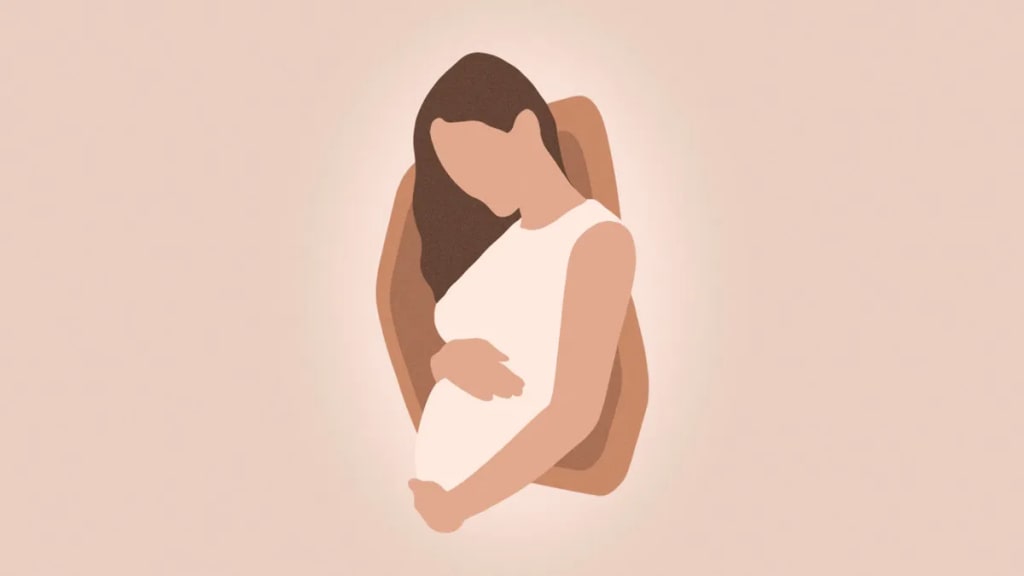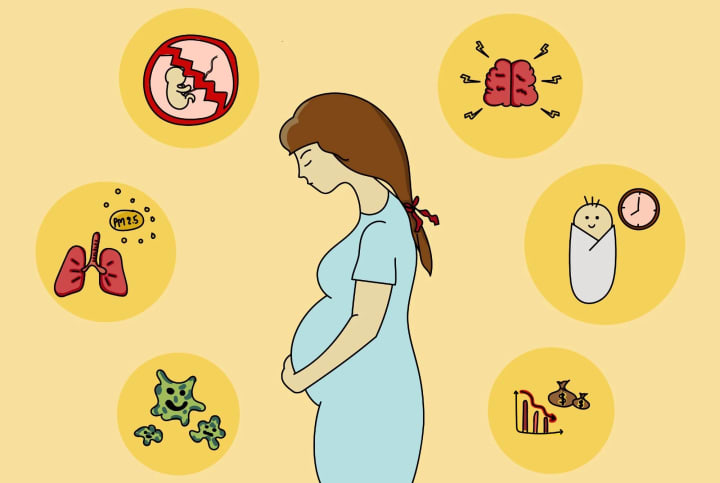
Throughout the incredible journey of pregnancy, the human body undergoes an array of intricate changes that facilitate the creation of new life. These transformations are initiated by a symphony of hormones, orchestrating a symphony of physiological adaptations. From the moment of conception, a remarkable cascade of events begins, shaping the course of pregnancy and the development of the fetus. Let us delve into the astounding complexity of these changes, exploring the wondrous processes that occur within the mother's body.
Within days of fertilization, the fertilized embryo implants itself into the uterine lining. This marks a pivotal moment, as the mother's immune system encounters a unique challenge. Despite the genetic differences between the mother and the developing embryo, the immune system must protect both entities without triggering an immune response that would harm the fetus. It is a delicate balance, involving a complex interplay of immune cells and intricate mechanisms that prevent immune rejection. This captivating phenomenon highlights the profound sophistication of the human body's ability to adapt and nurture new life.
Simultaneously, the physical structure of the mother's body undergoes extraordinary modifications to accommodate the growing fetus. The uterus, the nurturing sanctuary for the baby, expands upwards and outwards as the pregnancy progresses. Hormones such as progesterone and relaxin play a vital role in signaling muscles to relax, providing the necessary space for the developing fetus. However, the relaxation of muscles extends beyond the pelvic region and affects other parts of the body. This relaxation can lead to discomforts such as constipation and acid reflux as the muscles responsible for digestion become less efficient.

The respiratory system also experiences significant adjustments during pregnancy. The expanding uterus exerts pressure on the diaphragm, the primary muscle responsible for breathing. To compensate for the restricted movement of the diaphragm, the hormone progesterone stimulates an increase in the mother's breathing rate. This ensures that both the mother and the baby receive an adequate oxygen supply, despite the reduced lung capacity caused by the expanding uterus. It is not uncommon for pregnant women to experience a sense of breathlessness as the pregnancy advances.
The cardiovascular system undergoes remarkable changes to meet the demands of pregnancy. The kidneys increase the production of erythropoietin, a hormone that stimulates the production of red blood cells. Additionally, the kidneys retain water and salt, leading to an expansion in blood volume within the body. This expanded blood volume places additional strain on the heart, which responds by increasing its rate to pump the increased volume of blood. Although researchers continue to investigate the intricate alterations in blood pressure that occur during a healthy pregnancy, these changes remain essential for supporting the mother and the developing fetus.
As the pregnancy progresses, the physical presence of the growing fetus may exert pressure on veins, resulting in fluid buildup in the legs and feet. This can contribute to common discomforts experienced by pregnant women, such as swelling and discomfort in the lower extremities. Additionally, if the expanding uterus compresses a major vein called the inferior vena cava, it can interfere with the return of blood to the heart, leading to a sudden drop in blood pressure when the mother stands for prolonged periods. These physiological adaptations, while essential for the nurturing of new life, can pose unique challenges to pregnant women.
It is worth noting that pregnancy does not solely impact the physical aspects of the mother's body. Recent studies have shed light on the effects of pregnancy on the brain, although our understanding of this area remains limited. Brain scans conducted after pregnancy and during early parenting have revealed differences, suggesting adaptive changes that enhance parenting skills. These changes may include an increased ability to interpret facial cues, which is crucial in understanding and responding to a baby's needs. Further research in this field will undoubtedly contribute to our understanding of the complex interplay between pregnancy and the brain.
In conclusion, the journey of pregnancy encompasses





Comments
There are no comments for this story
Be the first to respond and start the conversation.